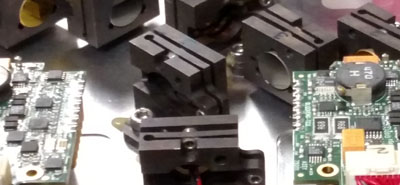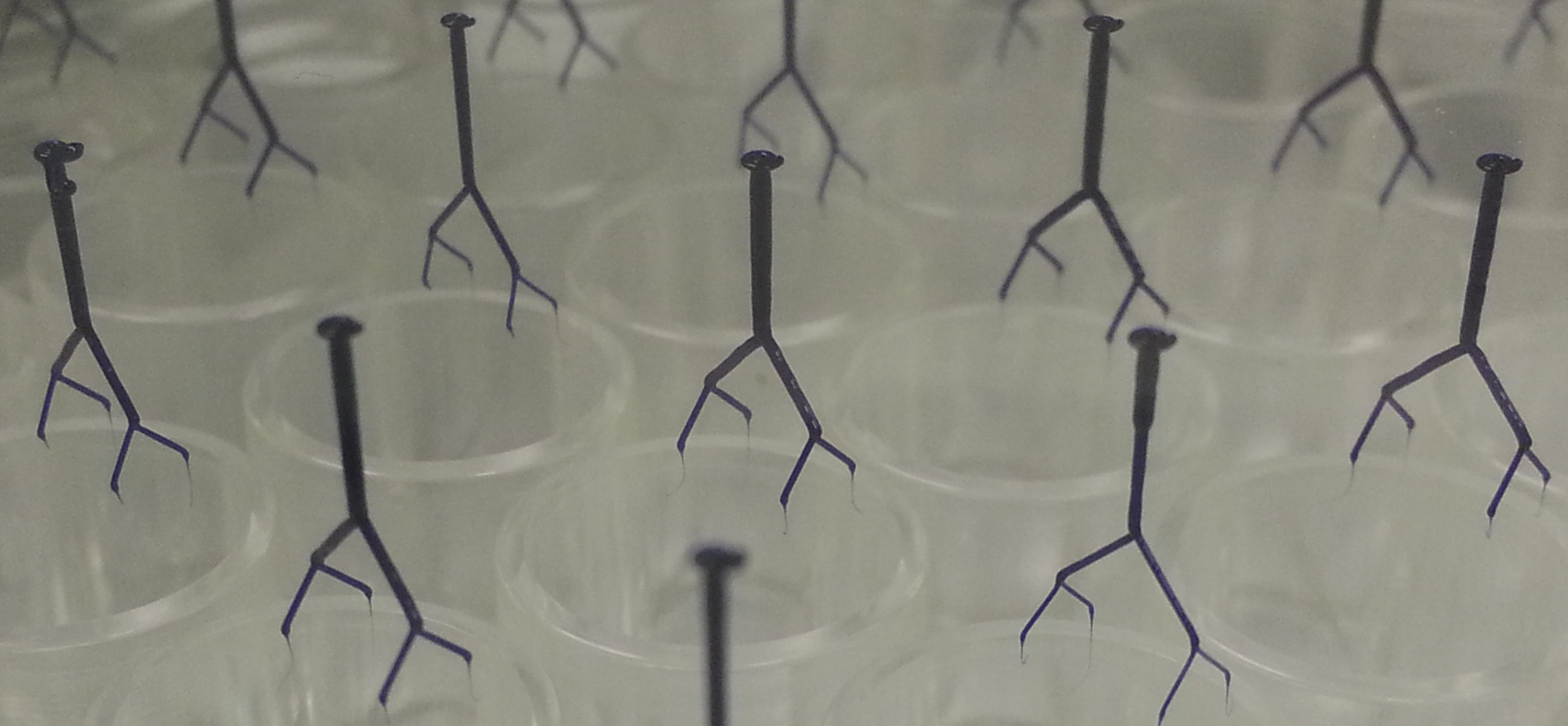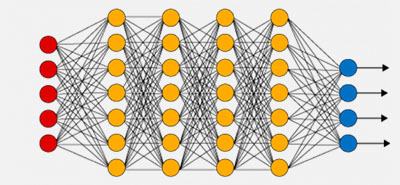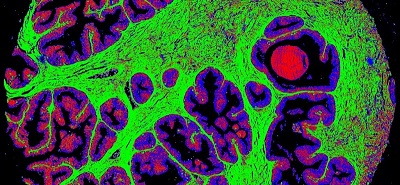
Imaging Theory & Instrumentation
We develop next generation laser-based infrared microscopes that can acquire chemical images of the samples at nano and micro scales. Furthermore, we enhance the analytical capabilites of our instrument through investigations of phase and dichroism. With the in-house design of optics, electronics, mechanics, and software, our custom-built microscopes are instrumental in bridging the gap between theoretical predictions and experiments.

Biological and Micro-Fabrication
The micro-fabrication subgroup utilizes 3D printing to create complex and physiologically relevant models. Specifically, we create complex vascular networks inside cell-laden hydrogels to achieve larger and more complex tissues constructs. These intricate models may find application in accurate disease modeling and regenerative medicine.

Tailored Nanosensors
The development of nanoparticle probes and small molecules labels enables the rapid identification and quantification of molecular species using infrared spectroscopy. Specifically, we develop probes and methods to produce them in a tunable manner using microfluidic technology. These tailored molecular sensors may find use in the detection of biomarkers with clinical significance and address the lack of specific probes for infrared microscopy.

Data Science
We develop, validate, and deploy novel image analysis techniques using machine learning approaches. By developing machine learning models to enhance the capabilities of our instruments, including denoising, super-resolution, compressive sensing techniques. Furthermore, we aim to translate recorded data into a domain-specific information, specifically, to introduce approaches that offer a new clinically feasible workflow that can aid pathologists and the healthcare community.

Systems Pathology
Systems pathology integrates molecular biology and clinical information by computational methodologies to predict disease progression. The cancerous tissue is a dynamic system, which relates to not only the abnormal gene expression within cells but also the disturbance of their surrounding microenvironment. By building reproducible in vitro models for investigating the initiation, proliferation, and metastasis of cancer, we better understand biological processes from a micro-scale perspective.

Clinical and Research Translation
IR data sets coupled with machine learning and deep learning algorithms can provide diagnostic and prognostic information with statistical confidence. The goal is to enable more effective cancer healthcare by providing digital diagnosis using artificial intelligence techniques. With the recent developments in the field the instrumentation is also on a path to becoming feasible for clinics. Our lab is brings instrumentation and artificial intelligence together to realize the potential of this imaging technique for clinical translation.